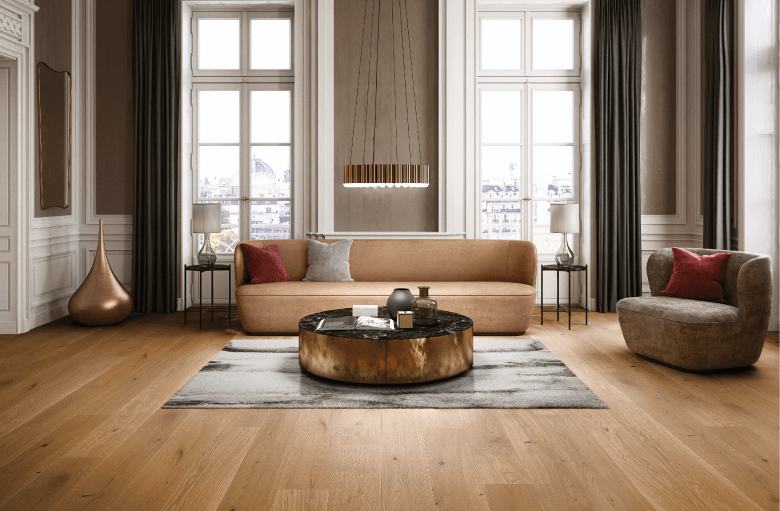Pros and Cons of Engineered Hardwood Flooring for Your Home
Choosing the right flooring for your home can feel overwhelming, especially when you’re balancing aesthetics, durability, and budget. If you’ve...

Choosing the right flooring for your home can feel overwhelming, especially when you’re balancing aesthetics, durability, and budget. If you’ve been researching your options, you’ve probably come across engineered hardwood flooring more than once. It’s a stylish, versatile choice that’s increasingly popular among homeowners looking for that warm, classic wood look without all the maintenance headaches.
Let’s break down the pros and cons of engineered hardwood flooring to help you make an informed decision.
What Is Engineered Hardwood Flooring?
Engineered hardwood is a layered flooring product. It features a real hardwood veneer on top (that’s what you see and feel) and several layers of plywood or high-density fiberboard underneath. This layered construction gives it extra stability and makes it less prone to warping than solid wood.
For a deeper look at styles and options, check out engineered hardwood flooring available at Flooring Outlet & More.
The Pros of Engineered Hardwood Flooring
1. Real Wood Appearance
You get the look and feel of genuine hardwood because the top layer is real wood. It brings warmth, elegance, and natural beauty to any room.
2. More Stable Than Solid Wood
Thanks to its multi-layer construction, engineered hardwood resists expansion and contraction due to humidity or temperature changes. This makes it ideal for basements and other moisture-prone areas.
3. Easy to Install
Many engineered hardwood products feature click-lock systems, making DIY installation a real possibility. Even glue-down or staple-down types are easier to manage compared to traditional hardwood.
4. Compatible with Underfloor Heating
Unlike solid wood, engineered hardwood works well with radiant heating systems, adding to your home’s comfort during colder months.
5. Variety of Finishes and Styles
Engineered hardwood comes in a wide range of colors, plank widths, and wood species, so it’s easy to match your existing décor or create an entirely new vibe.
6. Environmentally Friendly
Because the core uses less hardwood than solid planks, engineered flooring is considered more sustainable and uses fewer slow-growing trees.
The Cons of Engineered Hardwood Flooring
1. Limited Sanding & Refinishing
Depending on the thickness of the top layer, you may only be able to sand and refinish it once or twice (if at all). This can be a drawback for homeowners looking for a lifetime floor that can be refreshed repeatedly.
2. Can Be Prone to Scratching
While the top layer is real wood, it can still scratch and dent like any hardwood. Homes with active pets or heavy furniture should use area rugs and felt pads to prevent wear.
3. Cost Can Vary Widely
High-quality engineered hardwood can be just as expensive as solid hardwood. The cost depends on factors like veneer thickness, core materials, and finish quality.
4. Susceptible to Water Damage
Though it handles humidity better than solid wood, engineered hardwood is not completely waterproof. Standing water or excessive moisture can still damage the planks.
5. Not Ideal for All Rooms
Bathrooms and laundry rooms may still pose too much moisture risk. Consider luxury vinyl planks for those high-moisture areas instead.
Final Verdict: Is Engineered Hardwood Right for You?
If you want real wood beauty without the hassle of constant maintenance, engineered hardwood flooring is a solid middle ground. It offers durability, style, and installation flexibility that work well in most homes.
However, consider your lifestyle kids, pets, and moisture levels can affect how well it performs long-term. Always weigh your specific needs against the pros and cons.
Looking for beautiful, high-quality engineered hardwood flooring? Visit Flooring Outlet & More to explore a wide range of options that suit your space and budget.
Ready to upgrade your flooring? Start with engineered hardwood and bring timeless style into every corner of your home.



